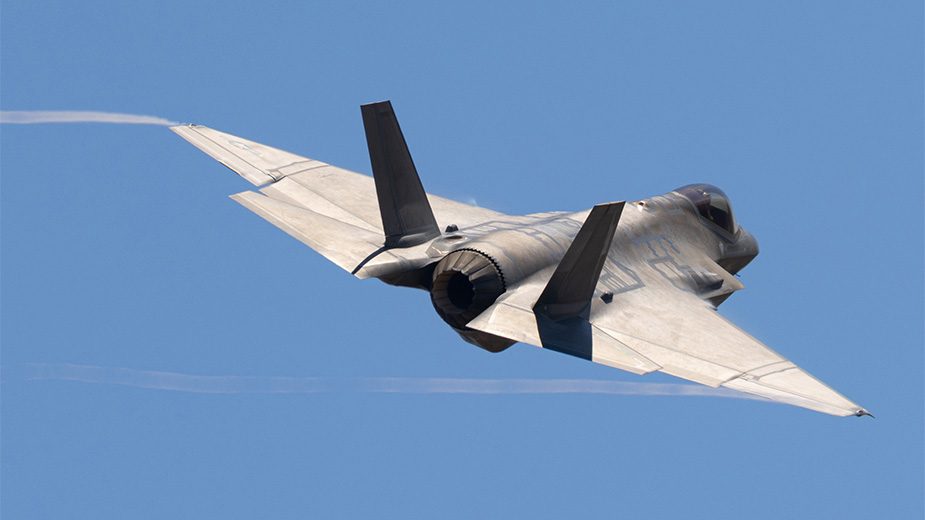Ghossain’s Bakery Feeds on the Mediterranean Diet
BOARDMAN, Ohio – Delicacies from the Middle East aren’t limited to a select ethnic population anymore. Exhibit A: the growing appeal of Ghossain’s Mid-East Bakery.
“People are so much more health-conscious now,” says Melissa Poland, head chef at Ghossain’s. “The Mediterranean diet has gained a lot of popularity. People come from downtown for lunch and college students come in because they want to eat healthy.”
Poland has noticed a trend of people moving away from eating fast-foods such as burgers and french fries to items such as hummus, fresh vegetables and lean meats seasoned with Middle Eastern spices.
“A lot of people will bypass fast food and, for a little extra money, they’ll come here for a quality product,” she says.
That’s helped transform Ghossain’s into an attractive lunch destination and for take-out orders, Poland continues. “We make the bread, make all the filling here, and fold it into wraps. We have seven different pies right now, 11 different flavors of hummus, and 25 different deli salads that we offer,” she says.
Experimenting with new combinations of spices and flavors also led to an increase in business, Poland relates. “We’ve seen an influx of new customers and had to add tables whereas before we didn’t,” she says.
Ghossain’s Orozo salad is by far the biggest seller. “I make 25 to 75 pounds of that per day,” she says. “You’re not going to come in here and get a product that’s been sitting for four or five days.”
The shelves inside the delicatessen are filled with spices and Middle Eastern mixtures that are hard to find anywhere else, Poland says. “Everything we get is imported,” she says. “A lot of it is made over in the Middle East and brought to us.”
Ghossain’s is best known for its flatbread and pita bread, which are manufactured in a large back-room operation that includes an elaborate baking process, says Fred Ghossain. He, his father and brother established the business in 1970. The company was born in a garage on East Philadelphia Avenue, expanded onto Market Street and then relocated in 2004 to a brand-new building on South Avenue.
With the move came an entirely new production system, Ghossain says. “All of this equipment was built in Lebanon and shipped here,” he says. “Lebanese technicians came over and assembled the entire production area.”
Ghossain’s manufactures two sizes of flatbread and one of pita bread, both in white and wheat flavors. “There are some days that we mix 2,000 pounds of flour and other days it’s 800 pounds,” Ghossain adds. “It depends on the orders.”
The bakery distributes its bread throughout the United States, Ghossain says, and supplies regional retailers between Cleveland and Pittsburgh as well as most restaurants in the area. “We also supply food companies such as Sysco, and they supply to their customers,” he reports.
Ghossain’s production process employs some of the most advanced technology in the baking industry, Poland says. A stainless steel pipe that runs along the ceiling in the manufacturing area links trucks outside where a driver can pull up and pump as much as 50,000 pounds of flour into the system. The automated mixing equipment is programmed to parse out precisely how much water, flour, salt and yeast is needed to fill an order. Once a batch is mixed, the dough rests before it is transferred to a cutting area where machines slice it into discs.
After the dough is cut, the discs are placed onto a series of stacked conveyor belts that allow the dough to rest, or “proof,” before they are fed into a sheeter – a machine that rolls the doughy discs into their final shape before they are placed into the oven.
“A series of rollers smash the discs one way, and then the other way, forming the circle of the bread,” Poland explains. Once the shapes are formed, the bread moves along the last leg of the conveyor and into an oven that can get as hot as 1,500 degrees. “It doesn’t take longer than seven seconds to travel through.”
The entire process takes about 40 minutes to manufacture a batch of pita or flatbread, Poland adds. “By the time it cools and hits the table, it’s ready for packaging,” she says.
Another convection oven that was manufactured in Italy is used to make Tuscan roles and Ghossain’s pies.
Much of Ghossain’s success has been through word of mouth, Poland says, but attributes the company’s success to its superior food products.
“It’s really amazing,” she reflects, “when you think about a small family-owned business that’s survived 45 years. They’ve kept it going to where they are today.”
Pictured: Fred Ghossain, his father and brother established the business in 1970. He’s pictured with Melissa Poland, head chef at Ghossain’s Mid-East Bakery in Boardman.
Copyright 2024 The Business Journal, Youngstown, Ohio.



